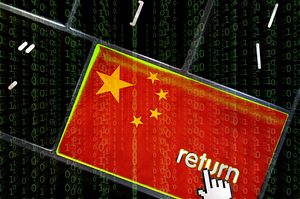For months, there have been signs that China’s leaders were poised for a crackdown on the internet. Last year, the government began a campaign against “online rumors,” and new laws against rumor spreading on social media resulted in their first conviction earlier this spring. Last fall, Xi Jinping told propaganda workers that the Party must have “a strong army” to “seize the ground of new media” — particularly the Internet. In February, at the first meeting of China’s new central cybersecurity group, Xi repeated his call for an Internet that will nurture “socialism’s core values.”
“Making cyberspace clean and bright,” as Xi put it in February, is generally seen as a thinly-veiled promise to eliminate any content the Communist Party of China find objectionable — from pornography and graphic violence to accusations of corruption with the CPC. As Tyler Roney wrote earlier this month, China’s anti-pornography campaigns leave major porn hubs untouched while cracking down instead on sites that feature user-generate content, some of which may be offensive to the Party for reasons having nothing to do with pornography.
Last week, China’s anti-pornography campaign struck harder than anyone had expected it to by stripping internet giant Sina Corp. of its online publication and distribution licenses for both print and audio/video content. Sina’s alleged crime? Releasing 20 articles and four videos that China’s watchdog deemed pornographic. Sina quickly apologized, but that hasn’t helped stem the tide of negative coverage in China’s state-owned media outlets, including CCTV, People’s Daily, and Xinhua. As the Wall Street Journal noted in its coverage, the attack on Sina is the first time the CPC has gone after one of China’s largest Internet firms. Generally, the anti-pornography campaigns focused on individual users or smaller websites, not the major players themselves. It appears that, under Xi Jinping, China’s war for the Internet is heating up.
Another long-feared volley was fired by China’s government this weekend — the blacklisting of popular foreign televisions shows that have been available for online streaming on China’s popular video sites. In January, Caixin magazine predicted that this move was coming. According to Caixin’s sources, China’s State Administration of Press, Publication, Radio, Film and Television (SAPPRFT) held a lengthy meeting strategizing how to retake control of the Internet television market. Internet TV, until this weekend, had been largely uncontrolled by China’s censors, thanks to regulations that allow shows to be streamed until the government bans them rather than requiring advance approval of shows, as China’s actual television networks do. This process created a massive backlog of shows waiting to be approved by SAPPRFT — all of which remained legally viewable to Chinese audiences.
Now, China’s government is indeed taking steps to regulate the internet television market. SAPPRFT announced the banning of four American shows popular in China: “The Big Bang Theory,” “The Good Wife,” “NCIS,” and “Practice.” “The Big Bang Theory,” a comedy about a group of scientists and professed nerds in California, has been especially popular in China, with the show netting over 1.3 billion views over the past five years. In a story on Western shows that have gained fans in China, NPR called “The Big Bang Theory” “must-see TV” for young Chinese viewers. Now, China’s government has decided this show, and others, are not fit for Chinese audiences. Interestingly, SAPPRFT did not provide any explanation for its decision, a departure from previous precedent. That lack of explanation is not likely to sit well with Chinese fans who no longer have access to their favorite programs.
Insiders interviewed by the New York Times said they had been expected a government crackdown to occur once the internet television industry reached a certain level of popularity. Apparently, after video site Youku reported a 400 percent increase in viewership for American shows between 2011 and 2012, China’s government decided it was time to act. A full list of new regulations for the internet television industry is expect to appear later this year. The new regulations are expected to provide China’s government far more control over what foreign shows can be streamed on Chinese websites. In other words, the next “Big Bang Theory” or “Sherlock” may never be shown in China in the first place.
Between the unusually strong response to Sina Corp. and the unexplained banning of several American television shows, China’s government is making a full-on power play for control of the Internet. The message is clear: toe the government line or face the consequences. It’s been months since Xi Jinping first expressed his vision of creating a “strong army” to win Party control over the internet. At the time, a media source told South China Morning Post that “the controls will get stricter and the room for media will dwindle further.” Now this prediction has come true. The war over China’s internet is finally in full swing.

































